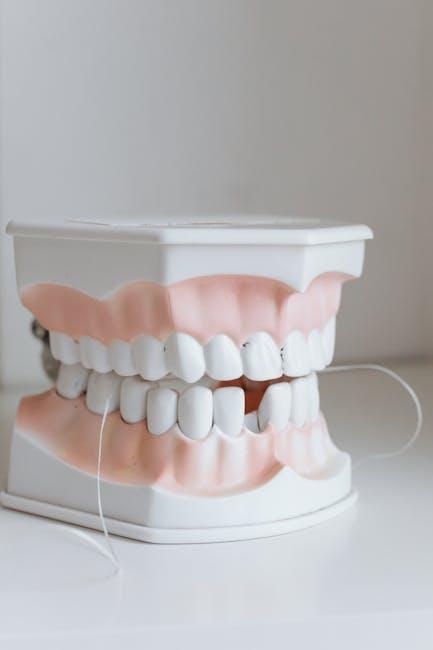
Fluoride Q&A: An Expert Breaks Down How It Helps Kids, and Its Unique History in Michigan
Fluoride is one of the most effective ways to protect children’s teeth from cavities and decay, yet it remains a source of questions and debate for many parents. At Michigan Medicine, dental experts emphasize the importance of fluoride in pediatric oral health and share insights into Michigan’s pioneering role in community water fluoridation. In this comprehensive Q&A, we’ll explore the science, benefits, safety, and distinctive history of fluoride use in Michigan, helping families make informed decisions for their kids’ bright smiles.
What is Fluoride and How Does It Protect Children’s Teeth?
Fluoride is a naturally occurring mineral found in soil, water, and even some foods. It plays a critical role in remineralizing tooth enamel—the hard, protective outer layer of the teeth—making teeth more resistant to acid attacks caused by plaque bacteria and sugars.
- Reduces cavities: Fluoride strengthens enamel and reverses early signs of tooth decay.
- Protects baby teeth: Even primary teeth benefit from fluoride’s protective properties, which support proper chewing and speech development.
- Safe and effective: When used correctly under supervision, fluoride is safe for children and adults alike.
Why Is Fluoride Especially Important for Kids?
Children’s teeth are more vulnerable because enamel is thinner and still developing, especially between birth and age 8. Pediatric dentists recommend fluoride as part of a holistic approach to oral hygiene.
Key Reasons Fluoride Benefits Kids:
- Early protection: Fluoride helps shield newly formed enamel from decay.
- Establishes good dental habits: Fluoride treatments and toothpaste encourage consistent oral care routines.
- Cost-effective prevention: Preventing cavities with fluoride mitigates the need for more invasive and costly dental treatments.
The Unique History of Fluoride in Michigan
Michigan is often cited as a leader in water fluoridation history. The state’s relationship with fluoride dates back over 75 years, reflecting both pioneering public health advancements and ongoing community efforts.
Highlights of Michigan’s Fluoride Legacy:
| Year | Event | Significance |
|---|---|---|
| 1945 | Grand Rapids Adds Fluoride to Water Supply | First U.S. city to implement community water fluoridation |
| 1950s-1960s | Statewide Expansion | Michigan leads increased adoption of fluoride programs statewide |
| Today | Over 70% of Michigan Residents Receive Fluoridated Water | Significant reduction in childhood tooth decay rates reported |
This trailblazing history has inspired research and public health policies emphasizing the importance of accessible fluoride for all residents.
Common Questions About Fluoride for Kids
Is fluoride safe for young children?
Yes. According to the American Dental Association and the Centers for Disease Control and Prevention (CDC), fluoride is safe when used in recommended amounts. Parents should supervise young children while brushing to ensure they use only a pea-sized amount of fluoride toothpaste and avoid swallowing it.
At what age should children start using fluoride toothpaste?
Most pediatric dentists suggest beginning fluoride toothpaste as soon as the first tooth appears, typically around 6 months. Small amounts (smear or rice-size) should be used for children under 3, increasing to a pea-sized amount by ages 3 to 6.
Can fluoride cause fluorosis?
Dental fluorosis is a cosmetic condition caused by excessive fluoride intake during early childhood while teeth are developing. It usually appears as faint white lines or spots on teeth and is preventable by proper fluoride use under dental supervision.
Benefits of Fluoride for Children: Summary
| Benefit | Description |
|---|---|
| Cavity Prevention | Strengthens enamel to resist decay and reduce cavities by up to 40% |
| Easy Application | Available via fluoridated water, toothpaste, gels, and varnishes |
| Cost-Effective | Prevents expensive restorative dental treatments |
| Supports Overall Health | Promotes healthy teeth that help children eat and speak properly |
Practical Fluoride Tips for Parents
- Use fluoride toothpaste: Always choose a toothpaste containing fluoride appropriate for your child’s age.
- Supervise brushing: Help children brush twice daily to prevent swallowing of toothpaste.
- Consider fluoride treatments: Ask your dentist if professional fluoride varnishes or gels could benefit your child.
- Drink fluoridated water: If your home water supply is fluoridated, encourage children to drink tap water to maximize benefits.
- Limit sugary foods and drinks: Fluoride is part of prevention, but reducing sugars is key to avoid cavities.
Firsthand Experience: A Michigan Parent’s Story
Rebecca, a mother of two from Grand Rapids, shares her experience: “Ever since we learned about the benefits of water fluoridation here in Michigan, I’ve felt more confident about my kids’ dental health. Our pediatrician also recommended fluoride varnish treatments at the dentist, and we’ve seen fewer cavities than their older siblings had. It’s reassuring to know that a simple mineral can make such a big difference.”
Conclusion: Fluoride’s Role in Shaping Healthy Smiles Across Michigan
Fluoride remains a vital tool in the fight against childhood tooth decay, backed by decades of scientific research and real-world success in Michigan. From its unique history as the first state to add fluoride to municipal water, to expert recommendations for everyday use, fluoride helps protect children’s teeth safely and effectively. Parents and caregivers who embrace fluoride alongside good oral hygiene habits empower their kids to grow up with strong, healthy smiles.
For more personalized guidance on fluoride and pediatric dental care, contact Michigan Medicine’s dental experts to schedule a consultation or preventive evaluation.


